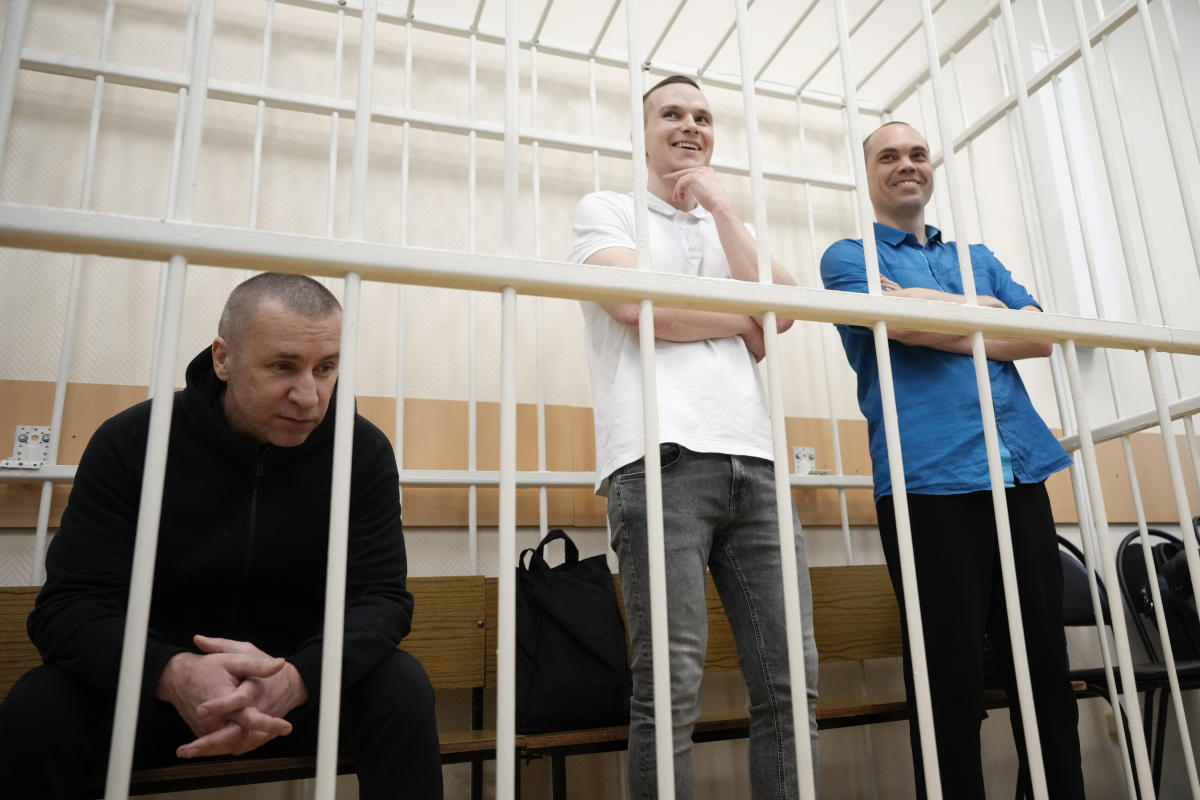PETUSHKI, Russia (AP) — The trial of three lawyers who once represented late Russian opposition leader Alexei Navalny got underway in Russia on Thursday.
Vadim Kobzev, Igor Sergunin and Alexei Liptser were arrested in October 2023 on charges of involvement with an extremist group, in a case widely seen at the time as a means to ramp up pressure on the Kremlin’s fiercest foe. Their trial is taking place in a court in the town of Petushki about 100 kilometers (roughly 60 miles) east of Moscow, in the Vladimir region.
According to Navalny’s allies, authorities accused the lawyers of using their status as defense attorneys to pass letters from the imprisoned politician to his team, thus serving as intermediaries between Navalny and what they called his “extremist group.”
Navalny’s organizations in Russia — the Foundation for Fighting Corruption and a vast network of regional offices — were outlawed and labeled as extremist groups in 2021, a step that exposed anyone involved with them to prosecution.
Navalny had been serving a 19-year prison term on several criminal convictions, including on extremism charges stemming from the 2021 court ruling that designated his organizations as extremist. He was arrested in January 2021 and until December 2023 was serving time in two different penal colonies in the Vladimir region. In December, he was transferred to a remote prison above the Arctic circle. He and his allies had rejected all charges against him as politically motivated, and accused the Kremlin of seeking to jail him for life.
In February 2024, he suddenly died behind bars in what his team and his widow Yulia Navalnaya charged to be a murder ordered by the Kremlin. Officials have rejected the accusations.
Russian authorities in February also put two more of Navalny’s lawyers on a wanted list. One of them, Olga Mikhailova, who had defended the politician for a decade, said she had been previously charged in absentia with extremism after fleeing the country. The other, Alexander Fedulov, also said last year that he was no longer in Russia.
For many political prisoners in Russia, regular visits from lawyers — especially in remote regions — are a lifeline that allows them to keep their loved ones informed about their well-being, as well as report and push back against abuse by prison officials.


